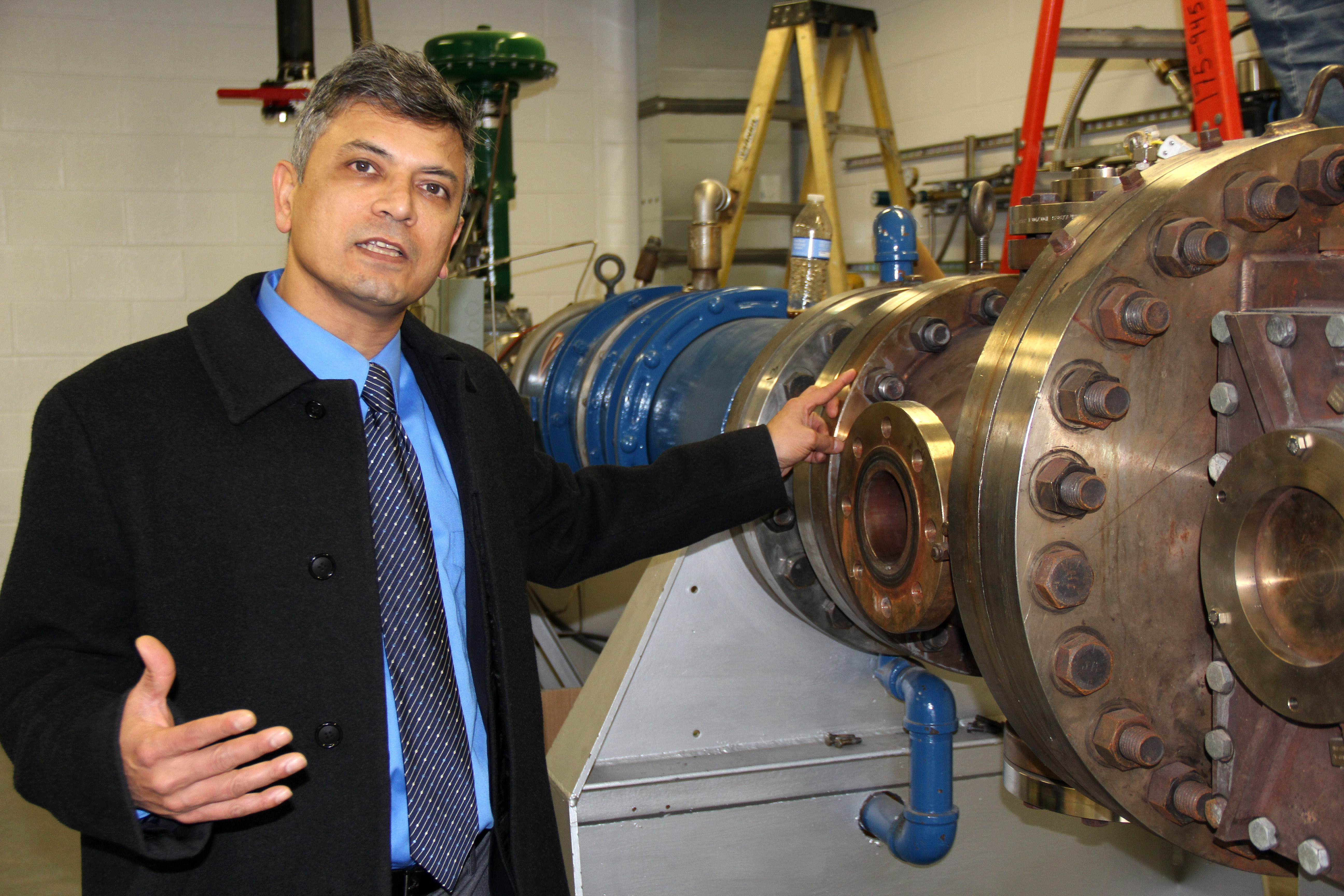Advanced Propulsion and Power Lab fills industry niche for advanced aerospace, turbine research

More systems are coming on line at the Advanced Propulsion and Power Lab at the Virginia Tech Corporate Research Center, officials said this week.
The lab is part of the university’s effort to grow as an international center for jet propulsion and gas turbine research.
“We’re the only academic laboratory in the nation at this level of leading edge research in an important, traditional area of applied science,” said Srinath Ekkad, co-director of the lab and the Rolls-Royce Commonwealth Professor for Aerospace Propulsion Systems in the College of Engineering. “Our goal is to have all the propulsion and energy companies come here and work with us to develop the next generation technology.”
First up is the Rolls-Royce AE-3007 engine, set to arrive in June for testing in a unique small jet engine test cell. Virginia Tech was named a Rolls-Royce University Technology Center for Advanced System Diagnostics in 2014.
Working relationships are also in place for Siemens Power Generation, United Technologies Aerospace Systems, GE Aircraft Engines, Honeywell, Pratt & Whitney Engines, Wyle, which provides services to the federal government; the U.S. Navy Naval Air Systems Command, and the Department of Energy.
The 8,100-square-foot facility became operational in March, uniting several propulsion research labs scattered across campus in a single location.
Faculty members from the Mechanical Engineering and Aerospace and Ocean Engineering Departments will work together on interdisciplinary projects, creating a one-stop opportunity for aerospace and gas turbine companies to test and develop new technology.
“The facility combines unique propulsion and engine-testing labs backed by a world-class team,” Ekkad said. “By providing these resources for research and development, we expect our industry partnerships to increase along with our opportunities to educate future aerospace and turbomachinery engineers.”
The Advanced Propulsion and Power Lab may also attract aerospace and energy companies looking for potential sites to set up operations, Ekkad said.
Co-directed by Joseph Schetz, the Fred D. Durham Endowed Chair Professor of aerospace and ocean engineering, the lab contains test cells for high propulsion jet engines, a diagnostics and instrumentation lab, and a transonic blowdown test cell, which measures high, Mach-speed propulsion flows. The diagnostic and transonic test labs are moving from their locations in the basement of Randolph Hall.
An additional unit in the facility known as a combustion test cell will house two experimental rigs, the first for Rolls-Royce sand ingestion tests to measure wear on jet engines from sand particles, and the other constructed through a Department of Energy project to focus on what happens in the combustion chamber of a gas turbine engine.
In addition, the Advanced Propulsion and Power Lab also becomes a home for a unique, large-scale rig to study rotating engine components that was donated to Virginia Tech in 2002 by United Technologies Research Center.
Dedicated to its motto, Ut Prosim (That I May Serve), Virginia Tech takes a hands-on, engaging approach to education, preparing scholars to be leaders in their fields and communities. As the commonwealth’s most comprehensive university and its leading research institution, Virginia Tech offers 240 undergraduate and graduate degree programs to more than 31,000 students and manages a research portfolio of $513 million. The university fulfills its land-grant mission of transforming knowledge to practice through technological leadership and by fueling economic growth and job creation locally, regionally, and across Virginia.




